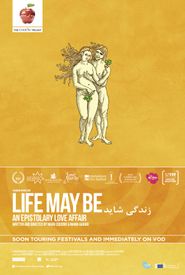Mania Akbari, a trailblazing Iranian film director, has left an indelible mark on the cinematic landscape, her creative odyssey commencing in 1991 with a stint as a painter, a medium she would eventually leave behind in favor of the silver screen, where she would first hone her skills as a director of photography, before elevating her role to that of an assistant director, navigating the intricacies of documentary filmmaking, laying the groundwork for her future success.
Akbari's professional trajectory has been characterized by her notable collaborations with esteemed filmmakers, with one such notable partnership being with the renowned Iranian director Abbas Kiarostami. This association led to her starring role in Kiarostami's highly acclaimed film, Ten, which premiered in 2002. The following year, Akbari co-directed the documentary Crystal, marking the commencement of her foray into the realm of direction. Building upon this experience, she went on to pen, direct, and star in her inaugural feature film, 20 Fingers, which was released in 2005.
In the year 2007, a cinematic endeavor was undertaken by Akbari, resulting in a sequel to the renowned film Ten, skillfully directed by Kiarostami. The sequel, titled 10+4, or Dah Be Alaveh Chahar, is a deeply personal and introspective film that courageously chronicles Akbari's arduous battle with cancer.
Throughout this film, Akbari's unwavering bravery and unshakeable resilience in the face of adversity are powerfully showcased, leaving a lasting impression on audiences. The cinematic masterpiece has garnered widespread acclaim for its emotional depth and unflinching authenticity, a testament to Akbari's unyielding determination to share her poignant story with the world.
As a multifaceted filmmaker, Akbari has consistently showcased her remarkable adaptability and range, effortlessly traversing diverse genres and cinematic styles with remarkable flair. Her cinematic oeuvre is characterized by a profound exploration of the intricacies of human identity, the complexities of interpersonal relationships, and the universal struggles and triumphs that define the human experience.
With a keen sense of empathy and a deep understanding of the human condition, Akbari's storytelling approach is marked by a nuanced sensitivity, effortlessly conveying the intricacies and subtleties of the human experience with remarkable precision and poignancy. As a result, she has established herself as one of the most accomplished and forward-thinking filmmakers in contemporary Iranian cinema, consistently pushing the boundaries of the medium and redefining the standards of excellence in the process.
Her remarkable body of work has garnered widespread critical acclaim and recognition, solidifying her position as a leading figure in the Iranian filmmaking community and a powerful voice in the global cinematic landscape.

























